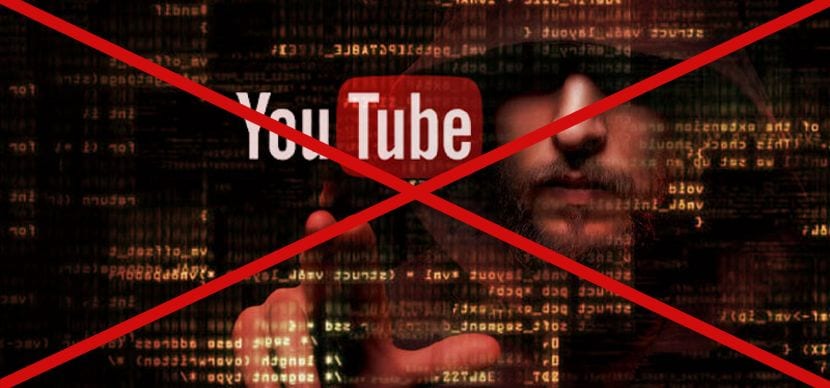
When it comes to IT security, one of the ways to protect yourself against attacks is by knowing how these types of attacks operate. Furthermore, mastery of these techniques is typically part of the arsenal of security researchers or students in this field.
This may justify posting content on paper or online to build an audience about it. And it is that in the network there are an infinity of websites with information about it And even on video platforms you can find a lot of information about it, such is the case of YouTube.
YouTube no longer allows content on ethical hacking
Things have changed now on YouTube and it will take some getting used to the fact that videos of this type are no longer available, at least temporarily. This is the result of an update of the platform's user conditions.
And it is that in an informative note that is dated April 5 of the current year. Prohibits creators from posting hacking-related content
Do not post content to YouTube if it matches one of the following descriptions: Show users how to bypass secure computer systems or steal user credentials and personal data. «
Kody Kinzie is Co-Founder of Hacker Interchange, an organization dedicated to teaching computer science and security for beginners. Hacker Interchange produces the Cyber Weapons Lab series on YouTube.
Recientemente reported the inability to post new videos on the platform due to new restrictions that Google has highlighted a video about the launch of fireworks over WiFi.
In Google, they explain that there is nothing new and that the April publication clarifies measures already in force. The old rules were general and prohibited creators from posting content that encouraged illegal activity, without mentioning anything about hacking.
It is on the basis of the quantity and quality of the reports received that Google claims to have handled these cases.
From now on, we are in the era of explicit mention regarding hacking content. The only thing missing is clarity from Google. In fact, the same rules put into practice by Google stipulate that it is allowed to publish content that at first glance may be dangerous if the main purpose is related to education.
The whole problem here lies in the question of whether to leave an algorithm to manage hacking terms.
In fact, the latest Cyber Weapons Lab video falls under this YouTube restriction.. This is proof that YouTube software relies on file metadata to generate a decision. “Just a clarification, we had not yet published the content on YouTube; this is due to a restriction in another video related to the WPS-Pixie WiFi vulnerability. YouTube moderators have never seen the Fireworks video, ”says Kody.
YouTube's ban on the posting of hacking videos seems to be inspired by the long-standing idea that everything related to this term is bad., but it is imperative to remember that a legitimate use of all knowledge about hacking is possible.
For example: knowledge of credit card fraud can allow third parties to develop systems to detect and prevent the use of stolen credit cards.
Knowing what techniques a malicious third party relies on to penetrate a website's databases and remove sensitive data can help establish effective testing procedures.
Kody Kinzie owes the survival of her YouTube channel to the many Internet users aware of this duality.
As Kody Kinzie was putting pressure on Google and to date, the contents are available to those who want to consult its. Although the rules on the type of content prohibited on the platform have not changed since April after having made the changes that affect content on hacking.
This problem was already exposed by Bill Joy in his essay Why The Future Doesn't Need Us.
You have to separate the concepts of making known and steps to create, that is, keeping the public informed and publishing a recipe to make a chemical or digital weapon are different things.
Although we do not accept it, security by obscurity is tangible and some sensitive information should not be in the public domain, it is like serious security bugs: they are not publicly exposed until there is a patch.